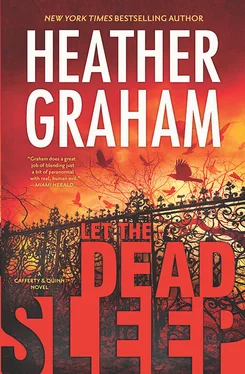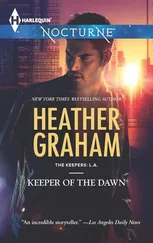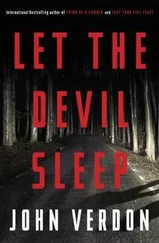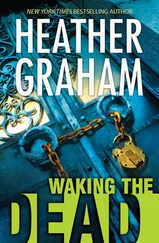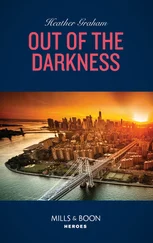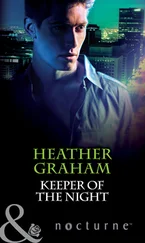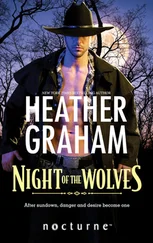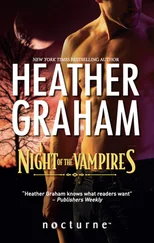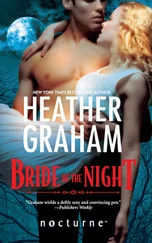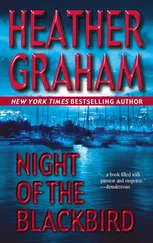The garage door opened into what had once been a pantry; now it was a hodgepodge of stored objects. She walked into one of the shop’s display rooms. The emergency floor lights were on and she could see the blinking blue lights that indicated the alarm was working. She reset it and moved through the darkened rooms to the stairway, passing the knight in full armor, a life-size voodoo queen doll and a standing display of Anne Rice’s Interview with a Vampire characters. She paused in the shadows, smiling.
“We were a good team, Dad,” she said softly. He’d been the collector, but she’d known how to create displays that made the shop a not-to-be-missed venue in the city. It had gone from a confusion of objects to a showroom worthy of a museum.
She hurried on up the stairs to her own room. It was nearly midnight and she really should get some sleep.
But after showering—she felt she had to; somehow death seemed to be clinging to her—she discovered that no matter how hard she tried, she couldn’t stop thinking. So she lay awake, hour after hour.
Michael Quinn. He was a celebrity once. But he’d been known for hard living, for dating a different beauty every week and attracting national attention, from sportscasters to pop stars. He’d been escorted out of a few establishments, and he’d been escorted into a few jails. Then there was an accident, and he’d disappeared from public view. For a few years, whenever a wicked football game was on, people would say, “If only Michael Quinn was playing!” and then even those sentiments died away.
Danni rose, turning the lights back on. Her iPhone was on her dresser; she walked over, booted up and keyed in “Michael Quinn.”
At first, it was all football stories—or stories about Quinn at local establishments. It was true that while he was a phenomenon, he promoted his city and its shopkeepers and tourist venues by being photographed in front of them all the time.
There was a picture of him being arrested. He was still smiling, and it was obvious that he couldn’t wave to the crowd because he was cuffed.
His hair had been longer then, falling over one of his eyes.
I died, he had told her.
She searched and searched and finally found an article. At least he hadn’t killed anyone else, nor had he had a passenger in the car when his alcohol level had skyrocketed and he had driven himself off I-10 and into Lake Pontchartrain.
Danni kept going from link to link, site to site.
He survived the crash, although his injuries had been extensive.
She came across a poor YouTube version of the news conference he’d held when he left the hospital. He announced he was leaving football, then thanked his family and a priest named Father Ryan and his doctors for his life. He said he didn’t know what he’d be doing yet, but probably, if the service would take him, he’d be joining the navy. Something warm stirred inside Danni; he was at a point many people came to. He’d nearly destroyed his life—he could straighten up, or go back to his wild ways. But there was a humility in his speech that touched her. There was sorrow in his eyes when he hugged his mother, a blonde woman who showed her age but, even with the aging he’d no doubt caused, had a gentle beauty. His father was tall and had tears in his eyes when he hugged his son.
The next reference she could find was a small news clip when he was accepted into the service and heading off to boot camp.
She found another brief mention when he joined the NOLA police force. And another, with a thumbnail picture beside it, when he left the force to begin his own business in private investigation.
She sat back, studying the screen, her stomach knotting. Her father was next to him in that picture. They were standing outside the station on Royal Street. Her father had one arm around Michael Quinn’s shoulder. She noted an advertising banner behind them for Jazz Fest three years earlier.
Danni sat back, trying to create a time line, trying to figure out how she hadn’t grasped a memory of his name when she’d first seen him in the shop. She’d been gone for four years of college, and she’d spent two years in New York City after that, apprenticing at an advertising company and then creating ads for clients. During summer breaks, she’d traveled with her father. She’d left the agency two years ago to come home and start working on her own projects; she’d done well, she could honestly say that. First, she’d sold watercolors on Jackson Square. Then she’d had work accepted by Colors of the World, a gallery down the street.
Her father had insisted they use the shop as a venue for her. She’d fought the idea at first, not wanting to fall back on family. Besides, it was a curio and antiques shop. And she really wanted to make it on her own. But then her dad had asked her to improve the look of the place—and she’d realized some of her oil paintings and watercolors could help in doing just that.
Michael Quinn was five or six years older than she was. So it seemed he’d come back from the service, joined the force and quit while she’d been gone. Not that she’d ever known him; she’d grown up in the Quarter while he’d been an uptown boy.
She clicked back to the picture of the man standing with her father.
And she thought about Gladys Simon.
It was late by then, but she threw on a robe and left her room, following the low-level emergency lights down to the shop and then to the basement level.
She paused for a minute. She’d never been afraid in the shop, her apartment or even the basement in the old house before. She’d always been surrounded by Egyptian artifacts, sarcophagi, coffins, death masks, antique weapons, ghastly movie props and more. She was as accustomed to these strange things as most children were to sofas, family photos on the wall and wide-screen televisions.
But that night, she was hesitant. The corners of the room appeared darker. A mannequin might have moved; a gorilla from a 1920s movie seemed to be staring at her from out of the shadows. A death mask of an Egyptian queen might have blinked.
“Ridiculous!” she said aloud. This was her home, her playground as a girl. She knew to be careful with these artifacts, but they’d never frightened her.
She turned on the overhead light, dispersing the shadows and the secrets they held.
She reminded herself again that she’d never been afraid of this room. She’d known and appreciated everything in it all her life.
And then there was the book. The Book of Truth.
She started looking through it again.
Chapter Four
NEVER TRUST ANYONE.
That was Leroy Jenkins’s motto; he’d gone by it all his life, and it had never failed him.
Now was not the time to begin trusting people.
He kept driving, wondering what he should do.
As he drove, he went back by the house in the Garden District. To his amazement, there seemed to be cop cars everywhere.
Sure, it was where big money lived. Sure, the cops cared about big money. But he was stunned. He hadn’t figured—in a house with two old ladies—that anyone would even know there’d been a break-in.
He drove quickly by, worried about what was going on.
“You’ve been betrayed.”
Hearing the voice, Leroy nearly went off the road and into the yard of a pretty antebellum house. He straightened the wheel just in time. This was not a good moment to draw the attention of the police.
“They will kill you, Leroy. The cops will kill you. No one is honest. Try to negotiate a deal, and you’ll be killed. Leroy, you’re not lucky in life. If you come from the gutter, people want to put you back in the gutter!”
Where was the voice coming from?
There was no one in the car with him.
No one...
He looked down. The bust he’d taken, the bust he’d planned to get with no muss, no fuss, the bust he could make big bucks on....
Читать дальше
